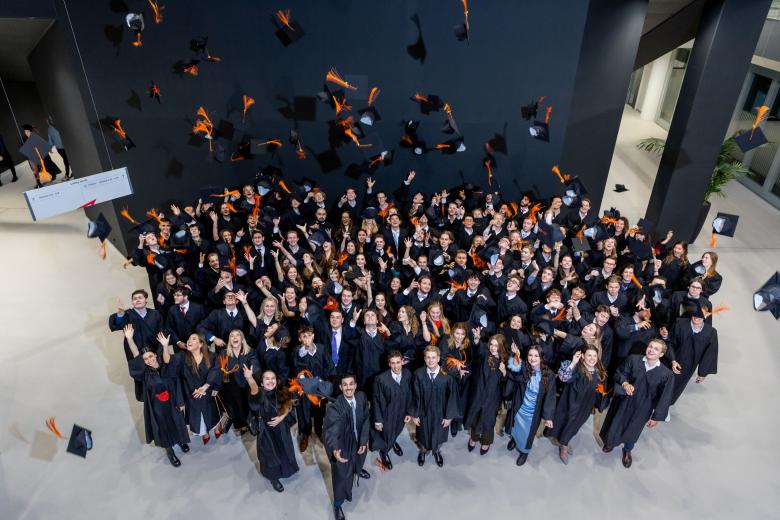Your future
As a Sustainability Science, Policy and Society student, you'll learn to cope with sustainability challenges from an integrated perspective to support policy making. Upon graduation, you'll be a well-qualified, interdisciplinary professional in the field of sustainable development. The skills you’ll develop during this master's programme will make you capable of contributing to the pursuit of sustainable development in a constructive and critical way.

Job prospects
Sustainability Science, Policy and Society graduates can look forward to a diverse and challenging career with plenty of job opportunities. In a recent study conducted by Maastricht University, different stakeholders active in sustainability policy making, such as the business community, non-governmental organisations, international scientific organisations and other institutions for higher education, indicated that they have a need for graduates in this field.
Career paths
The MSc SSPS programme will equip you with the knowledge, skills and competences that will enable you to find a position in governmental, non-governmental, or commercial organisations. You could pursue a career as a:
- policy maker
- sustainability coordinator
- analyst of strategic policies
- consultant in sustainability issues
- scientist
PhD programme
The Sustainability Science, Policy and Society programme provides a good preparation for students who want to apply for the Maastricht University Graduate School of Sustainability Science's interdisciplinary PhD programme in Sustainability Science, Policy and Practice at Maastricht University. Some graduates might consider a scientific career at a research institute or university, through a PhD-traject. Obtaining the master degree does not guarantee a place in the PhD program.
More information
Alumni@work
Graduates have found positions as:
- Corporate Social Responsibility Consultant at Ernst & Young
- Junior Consultant at Green Trust Consultancy
- Project manager at The Europan Business Network for Corporate Social Responsibility (CSR Europe)
- PhD Researcher at International Institute of Social Studies in Rotterdam
In this section, we present the average employability data for all programmes of the Maastricht University School of Business and Economics (Alumni survey from 2024). In our latest survey, 78,0% of our graduates indicated they would choose the same study programme again! For detailed information per programme, please see the bottom of this page.
Employment rate
| After 1,5 years | After 5 years | After 10 years |
| 97,5% | 98,2% | 100,0% |

Median gross monthly income
| After 1,5 years | After 5 years | After 10 years |
| € 3.300,00 | € 5.000,00 | € 6.300,00 |

Working location of our alumni 1,5 years after graduation
| Country | % |
| the Netherlands | 45,2% |
| Germany | 28,5% |
| Belgium | 10,0% |
| Other EU country | 8,8% |
| Outside of the EU | 7,5% |
Average employability data 5 years after graduation per programme
Please note that some programmes did not have enough responses to allow a satisfactory result and are therefore not included in this list.
MSc programme | % employed | Median gross monthly income | Would choose same programme again |
| Econometrics and Operations Research | 100% | € 3.665,00
| 81% |
| Economics | 100% | € 3.700,00 | 75% |
| Financial Economics | 100% | € 5.500,00 | 62% |
| International Business (all specialisations) | 98% | € 5.000,00 | 76% |
| Learning and Development in Organisations | 95% | € 4.000,00 | 90% |
| Global Supply Chain Management and Change | 100% | € 5.100,00 | 90% |
| Sustainability Science, Policy and Society | 100% | € 4.000,00 | 80% |
| Public Policy and Human Development | 97% | € 4.400,00 | 86% |
